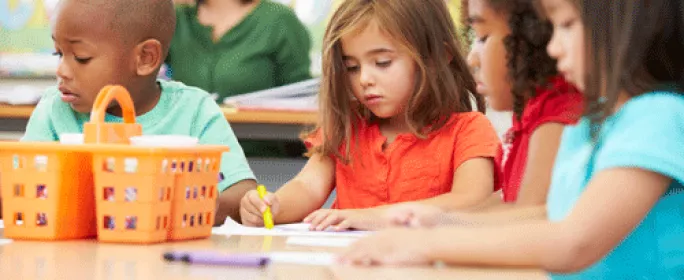Ministers set to decide on testing for four-year-olds
The decision on whether all four-year-olds should be tested when they join reception year will be announced “very soon”, a conference in London heard today.
The Department for Education (DfE) announced last year that it wants to introduce a “baseline assessment” in primary schools in order to measure how children have progressed by age 11.
The consultation - into whether this new baseline should be at age 7 or age 4 - ended more than three months’ ago.
The idea that the test should be set for the younger age group has been condemned by many working in the early years sector. The training organisation Tactyc has said the proposal is “fundamentally misguided”.
Anna Paige, deputy director of the DfE’s Qualifications and Assessment Division, told delegates at the Westminster Education Forum today that an announcement on the assessment would be made shortly.
She said that there was strong support for some kind of progress measure, although she admitted there were mixed views on where the baseline should fit.
“If you support progress measures, you have to put a baseline somewhere,” Ms Paige said. “Ministers will have to make a judgement on where it should be and, wherever it is, the means of tracking children’s progress from baseline to Key Stage 2 needs to provide meaningful and reliable results.”
But Jan Dubiel, national development manager for Early Excellence, a training organisation, said that assessing four-year-olds was very different from testing older children.
“I’m very concerned that we are going to slip into things which are easy to count, rather than the things that actually matter,” he told the Westminster Education Forum in London.
“I’m less concerned with where [the baseline] is and want to examine what we assess and how we assess it.”
Mr Dubiel, who oversaw the implementation of the early years foundation stage profile for the now defunct Qualifications and Curriculum Authority, said that there was good evidence linking non-academic aspects of children’s learning early in life with how they did later in school.
Areas such as a child’s well-being, how involved they become in play and their language acquisition at age 4 have been shown to be good measures of children’s potential, said Mr Dubiel.
While these things are hard to measure, there are existing scales that enable teachers to assess children on these aspects of development, he added.
Speaking after the conference Mr Dubiel said: “In order to get a true picture of what a [early years] child is like you can’t just look at discrete subjects like English or maths, you need to look at things like learning behaviours and well-being.
“I could teach a child to count to 20 in an afternoon, they would learn it by rote, then you could test them on it. But it gives you no useful information about whether they have an understanding of number.”
Keep reading for just £1 per month
You've reached your limit of free articles this month. Subscribe for £1 per month for three months and get:
- Unlimited access to all Tes magazine content
- Exclusive subscriber-only stories
- Award-winning email newsletters




